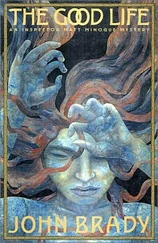Lamb, he said.
For the question must be answered.
Sally was saying something to him, and he turned to listen. ‘The first reviews,’ she said. ‘I have them in my bag. I must warn you …’ and she leaned closer to him, dropped her voice to a whisper. ‘They are not marvellous. Not quite what we hoped for. But there are many more yet to come.’
‘What did they say?’
She shook her head at him. ‘I’ll show them to you later. Dismiss them from your mind. Now, Michael …’
‘Yes?’
‘Drink up. We’ve a long day ahead.’ And she clinked her glass on his.
*
Briefly he panicked, felt his heart fluttering in his breast, thought how difficult it was even to breathe, to lift the chest, fill the lungs and empty them again — he sat there, looking at his hands, paying careful attention to the rising and falling of his chest, and after a few minutes he was able to lift his head. Someone was speaking, but not to him. ‘I liked your programme about George Lamott,’ a woman was saying. Alice Mortimer, he remembered now, a woman with auburn hair, tiny arms wrapped in silver. She was speaking to Roger Annais, who was nodding back at her as she said, ‘One element which has become apparent during this episode is that we are losing any sense of values worth fighting for. Because we have no sense of these values, we are constantly buffeted by the values of others, or by our perceptions of these values. We are over-conciliatory, imagining these values to be more and more absolute the more confused we become.’
‘I agree,’ said Roger Annais, nodding still. ‘When the religious tell us that their “beliefs” must be respected, we acquiesce carefully. We don’t dare to ask “Why?”’
‘The funny thing is, that even on your programme, Roger, they were so reluctant really to discuss the heart of the matter. I was amused to see how nervous they were, how they censored themselves even as they debated the issue of self-censorship,’ said Alice Mortimer.
‘George Lamott’s point is very simple, as I understand it,’ said Arthur Grey. ‘He argues that it has become usual to fudge the whole thing. Instead of being prepared to say, “No, this is wrong, it is simply wrong-headed to find any of this offensive,” we say, “Well, there may be those who misinterpret these words, and thereby, we cannot proceed.”’
‘It’s not entirely their fault,’ said Roger Annais. ‘Things sometimes do get blown out of proportion. Suddenly, the thing becomes a cause célèbre. Perhaps someone says something misguided in an interview, irritates someone or a group of people.’
‘Nonetheless we are losing our grip,’ said Alice Mortimer, with a wave of her arm, so her bracelets chimed and sparkled. ‘So many ideas are mediated for people. So you can have a small enclave — a highly intelligent enclave — deliberately misrepresenting something, in order to get people fired up. They know that these people won’t ever read the original. They will just respond to the call to anger, in essence.’
‘It’s the way of elites everywhere. The ordinary people never know what’s really going on,’ said Arthur Grey.
*
Michael listened, though he wasn’t sure what they meant. He had a sense of drama, something they all regarded as significant. They leaned towards each other; they had forgotten him. It was right, too, that he should be so easily forgotten. He had sequestered himself for too many years, he had never heard of George Lamott. They had opened the door to him — just a crack — he had squeezed himself through. He had crawled into this elegant lunch, because the door was slightly open, and he had been hammering on it for years.
*
‘It will be interesting to see whether this type of affair becomes quite common, whether publishers will continue in this vein,’ Arthur Grey said.
‘And then you will have authors censoring themselves before anyone else does,’ said Roger Annais. ‘Perhaps this is already happening.’
‘All you need is fear. You don’t even need legislation. You just need everyone a bit worried, glancing over his or her shoulder. It’s a marvellous way to change a society, without having to go through the boring process of campaigning for legislative change,’ said Alice Mortimer.
‘It will be interesting to see what the response of the reading public is. Whether they buy this book, simply to see what the problem was.’
‘I hope they do,’ said Alice Mortimer. ‘That would annoy a few people.’
‘I don’t think it’s fair to blame the religious in this. Not one of them has voiced any objections to Lamott’s book. This is not a question of religious extremists versus liberal democracy,’ said Sally.
‘… It is the suicide of liberal democracy. It’s self-annihilation by degrees …’
‘Like lemmings, we jump,’ said Arthur Grey. ‘We jump before we are pushed. There is no one around, even, but just in case someone appears, someone who might — or might not — push us — we jump.’
‘They are not liberal, in the true sense,’ said Alice Mortimer. ‘They are double agents, working to smash the edifice from within.’
‘Well, you don’t hear swathes of the religious denouncing the whole thing.’
‘That’s not true, some of them have.’
‘Not enough of them,’ said Roger Annais.
*
Their voices merged, as Michael sweated and twisted his fork in his hand. They said, ‘Naturally … One need hardly say … Of course …’ All that he did not understand was clear to them. They nodded at each other, ate with gusto, splashed wine into their glasses. They clashed vividly, or concurred suddenly — everything was emphatic, determined. Then it was as if they suddenly remembered they must include him, and so they issued a general murmur, ‘… but however … Let us not … We oughtn’t …’ Alice Mortimer nodded her auburn curls towards him. ‘… Now, The Moon …’ she began to say.
And he nodded back at her.
‘Yes, I wanted to ask you about your title,’ she said, with a wave of her silver arms. ‘Odd title, I thought, considering the subject of your story. And then I wondered, is it la lune ne garde aucune rancune , the all-forgiving moon? Or Diana and the hunt? What did you mean by it, if you don’t mind my asking?’
‘I don’t mind at all,’ said Michael. In the silence that settled around him, he fumbled with his words. ‘I meant … well, something about madness of course, and then … something about … unknown mystery, something which is intuited but not … precisely … something which can’t show itself …’
‘Who intuits it?’ said Roger Annais.
‘I hoped that might remain … a little ambiguous …’ said Michael. They paused and nodded, as if to encourage him. Then Arthur Grey was saying, ‘I thought it was a most interesting book, but there was something I wanted to ask you about. This poor man Semmelweis — who I confess I had never heard of before — is opposed to one sort of dogmatism — the adamant beliefs of the doctors around him, their particular theories about childbed fever. This dogmatism is ruinous, we are made to see. But then he develops his own opinions, and though they are right, it turns out later, he is relentless in his arguments, dogmatic himself, one might say. He insults his opponents, bombards them with invective, and won’t submit to the rules of scientific experiment. Essentially he is as dogmatic as his foes, is he not?’
*
Michael lifted his head. They were waiting, expecting him to answer. Yes, he wanted to say. It is not coherent. Naturally when I began, I hoped my book would be lucid and true, and yet as I wrote it — even as I wrote it — I sensed it was spiralling out of my control. And then I thought perhaps it did not matter, that — like everything else I wrote — it would not be read, nothing would come of it. He wanted to say this; he wondered briefly about saying it, but then he wasn’t sure how it would sound to them, so he wiped his hands and said, ‘It is true that Semmelweis is very angry … Perhaps this anger loses him the argument … But somehow, to me, I think … Well, I think there is — surely there must be — a difference between the lone figure … and the many. The one and the confident many. Perhaps the many are so confident — dogmatic — only because they are among the many. Not because they have thought really — truly thought — about what they say. The solitary man must either say nothing … or shout to be heard …’
Читать дальше












